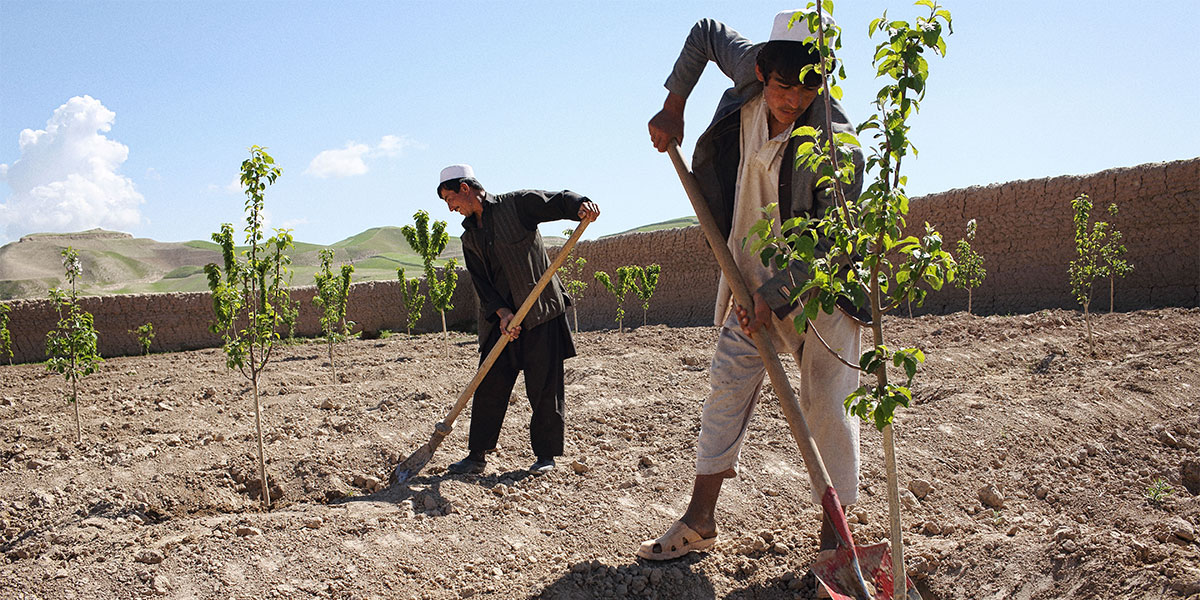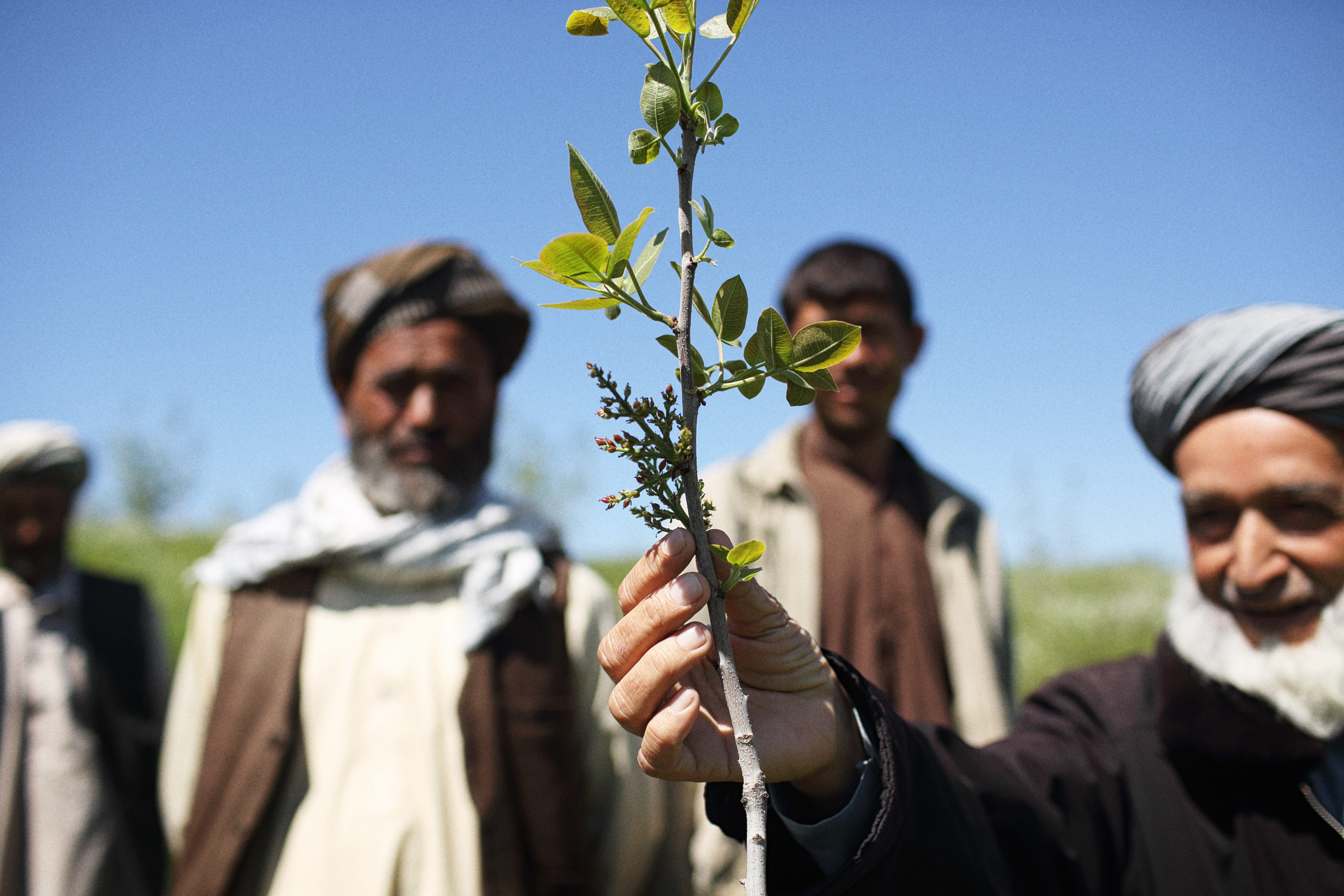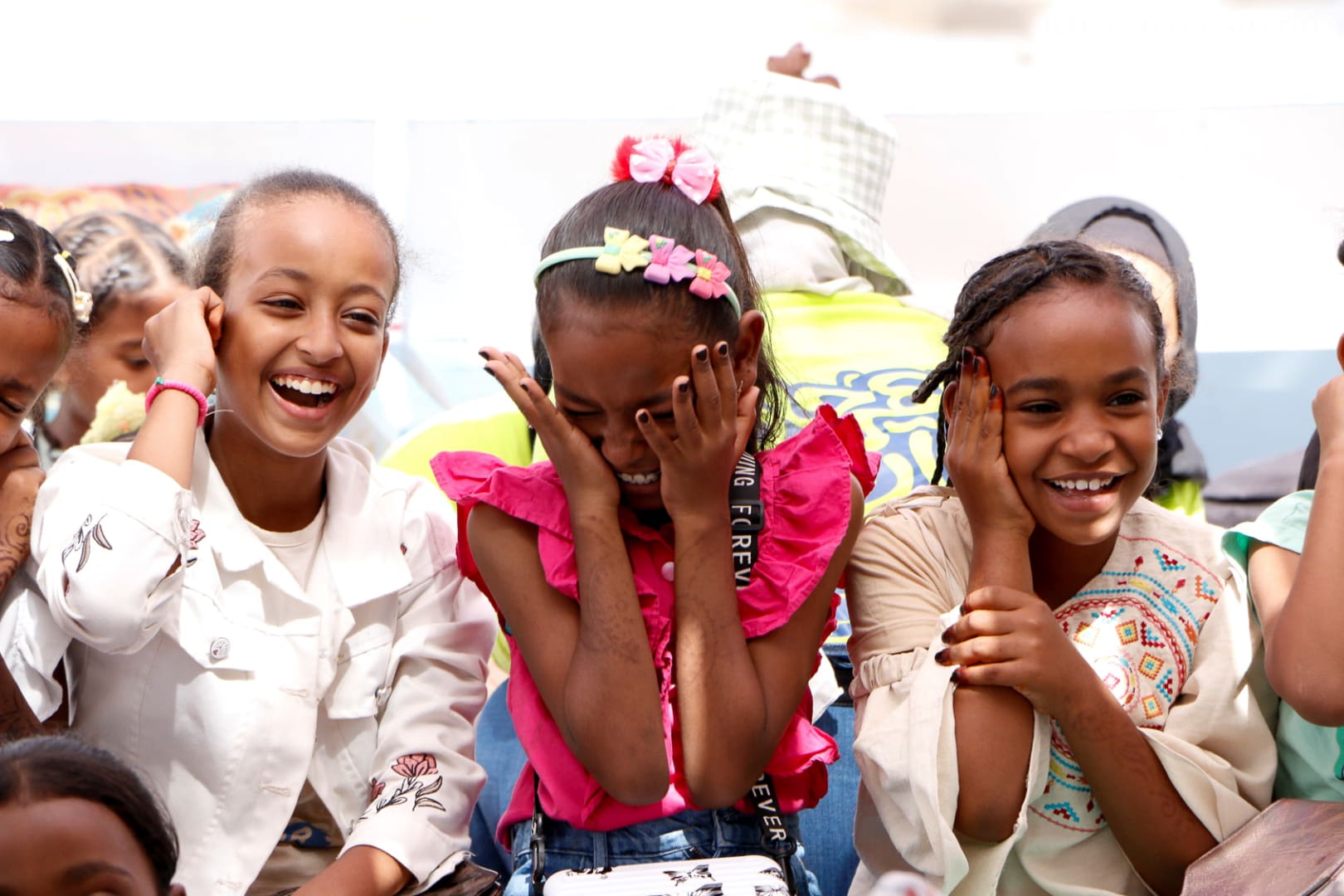Over one million trees planted – an update on our EC-funded climate resilience programme in northern Afghanistan
An update on our EC-funded climate resilience programme in northern Afghanistan

After decades of war and political turmoil, Afghanistan remains one of the most under-privileged countries in the world. The country’s delicate political situation and its impact on the population are well-known to the international community, but less widely discussed is the impact of climate change.
With poverty and displacement so widespread already (Afghanistan currently ranks 170 out of 189 countries on the UN’s Human Development Index), an increased frequency of natural disasters, ever-more harsh winters, and extreme weather events take an even greater toll on rural communities.

Whilst those in the mountainous northern areas are particularly vulnerable to climate fluctuations, the entire population is increasingly at risk. Agriculture provides employment for two-thirds of the population and generates nearly 50% of the country’s GDP; because it is so largely dependent upon irrigation, the variability in the water supply due to the increasing prevalence of droughts and floods is having a knock-on effect in production. Combine this with a fast-growing population, and the possibility of severe food scarcity looms larger than ever, unless communities can find ways to adapt and increase their resilience.
In 2018, alongside the University of Central Asia (UCA), and with funding from the European Union, AKF started working on a large-scale, 4-year programme aimed at improving resilience to climate-induced shocks for the communities and ecosystems of the Panj-Amu river basin.

The programme has been working at both community level and government level, and in a number of ways:
- A climate change scenario model is being developed based on analysis of past weather patterns to predict future fluctuations. This will then be linked to a land-use model to enable stakeholders to understand what type of agriculture would work best in each area.
- Government officials are being trained in how to use the scenario modelling tool and interpret its results.
- An Environmental Education Programme focused on climate change impact has been designed and will be delivered in 15 schools, with the objective that this could be scaled and rolled out nationally through the Ministry of Education.
- Communities are being supported to develop Natural Resource management plans, with specific consideration given to the impact of climate change. Local actors are also being trained in how to implement and manage such plans, as well as to establish rangeland and woodland management systems.
- Community members, particularly youth, are being trained to increase the productivity of horticultural crops, as well as improve livestock husbandry.
Impact to date
+0MILLIONdrought-resistant trees planted+0THOUSANDhectares of pasture land managed through rotation grazing, fodder banks, plantation etc+0THOUSANDhectares of rehabilitated rangeland+0THOUSANDcommunity members trained in rangeland and woodland management0hectares of woodland reforested0community climate change sensitisation workshops held0community-based Natural Resource Management Committees established
With much good progress being made, the project team organised a plantation campaign in early spring 2020 (before COVID-19 hit). Thousands of community members participated, including students and young people, local women, government officials and members of the Community Development Council and natural resource management association.
In Takhar province, participants planted over 12,200 trees in public spaces in close coordination with the government. Through this campaign and the work of the programme, over 1.5 million drought-resistance trees have been planted. The abundance in demand for trees has enabled local women to start nurseries to supply saplings to the communities. These income-generating activities have earned local families around $32,000 since the programme began.

With the world placing increasing importance on countering climate change, and some very high-profile names getting involved to spur positive and meaningful action (see Prince William’s ground-breaking initiative The Earthshot Prize, for example), this work that AKF and the wider AKDN have been doing in communities around the world for many years is becoming ever more important. This programme is set to continue for another two years and aims to equip 72,000 households with the knowledge and skills to effectively manage their natural resources and navigate the challenges of increasing climate-related issues. The programme also aims to rehabilitate 75,000 hectares of land, and increase the livelihood opportunities of 420,000 individuals.
The ‘Improved participatory management and efficiency of rangelands and watersheds’ is a 4 year, €11.67 million programme, funded by the European Union, and has been in progress since August 2018. In 2019, AKF’s bi-annual Walk and Run helped raise over £100,000 to contribute to this vital work, and this money was matched by the EU, who contributed £9 for every £1 raised.


Support our work Your donations are helping us build a future where we all thrive together.